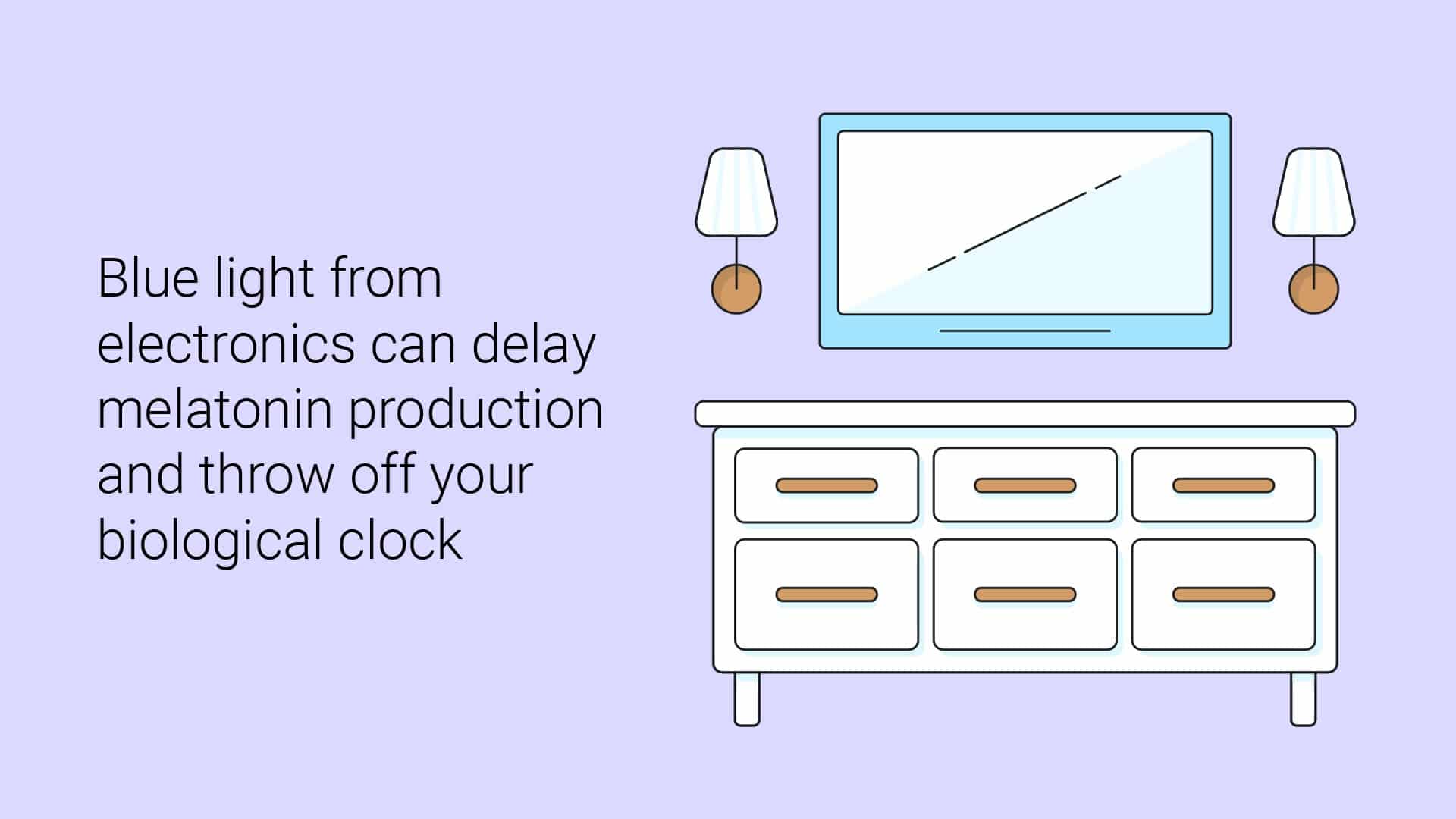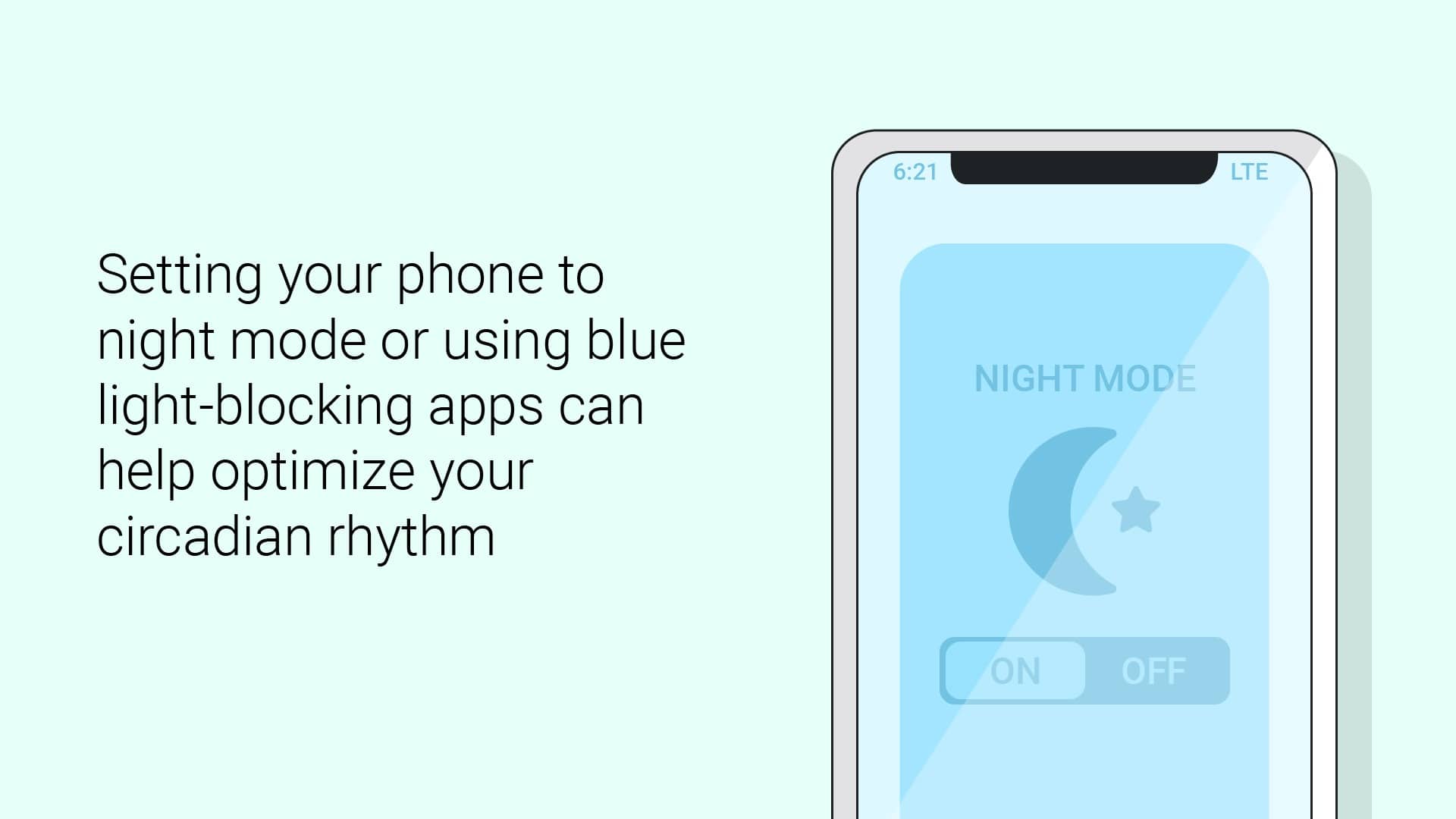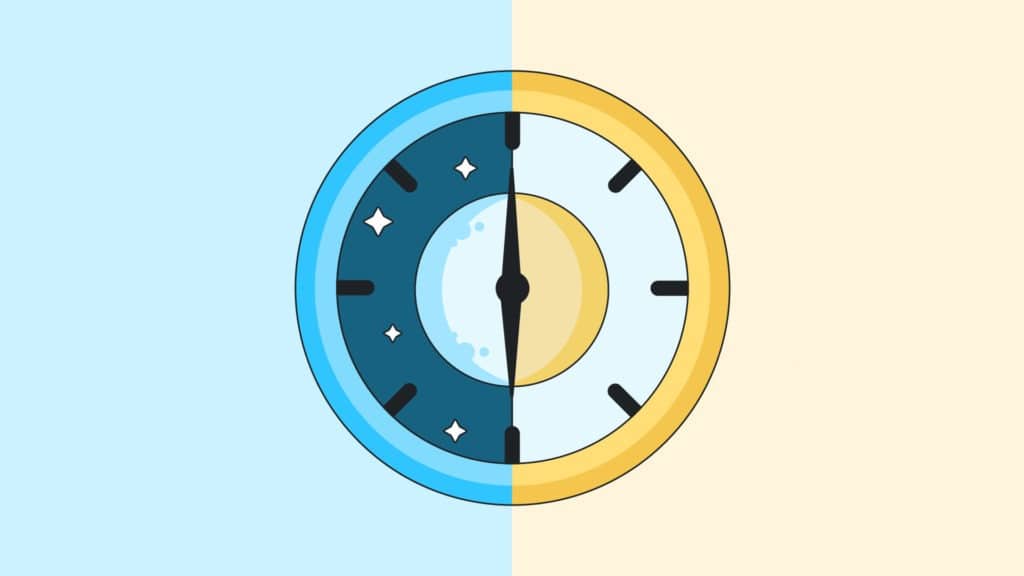Circadian rhythms are the daily biological patterns that govern most life on earth. Ever wonder why people tend to feel sleepy or hungry around certain times of the day, or why jet lag is actually a thing?
From humans to mammals, insects and even plants, we all have a “clock” that determines our schedule. This internal system aligns our sleep-wake cycles on a 24-hour pattern. Modern science shows this process may impact many biological and mental functions.
Understanding these rhythms helps us understand our own bodies’ patterns and needs. Working with these cycles helps us optimize our routines, improving sleep and wellness.
Let’s take a closer look at how this internal clock works with our environment, and how our actions may impact it.
An Overview of the Circadian Clock Rhythm
So what exactly is this internal clock and how does it work?
The majority of people in modern societies live much differently than in nature. This makes the circadian system a hot topic of research! Bright screens, electric lighting, long-distance travel, shift work and more all impact the body’s natural cycles. Because of this, disruptions to the circadian rhythm are common.
The “circadian clock” involves many processes. This function occurs on the molecular level within individual cells and between cells. As they coordinate together, these processes work to sync the body’s internal time with the 24-hour cycle of environmental time.
Most physiological processes take their cues from this system. Its functioning also impacts a broad spectrum of health issues. Sleep is the key domain of this process. During rest, the body heals and regulates the immune system, as well as hormones such as Cortisol and Growth Hormone, and the appetite hormones Ghrelin and Leptin. The brain also processes and consolidates learning and memories, while the body clears out toxins from the day.
What is the impact of these processes? Well, research links poor sleep habits and disrupted circadian rhythms with cognitive and behavioral impairments, as well as mental health concerns, metabolic problems, Alzheimer’s, and some cancers. Scientists believe these internal systems impact our health more than we may realize.
The Internal Cellular Clock
When babies are born, one of the first things they learn is how to establish and stabilize their circadian rhythms at approximately three months of age. This learning process begins as they start to experience the different cycles of light/dark and cold/warm. Fluctuations in body temperature are one of the first regulators. Then, the production of key hormones like melatonin and cortisol helps establish a regular circadian cycle.
Scientists identify the main biological clock as the suprachiasmatic nuclei (SCN). Located in the hypothalamus, the SCN is the pacemaker of the body’s circadian system. It receives input from complex nerve pathways related to the eyes. When it receives signals related to light, it keeps the body active. Then in darkness, it stimulates the parasympathetic nervous system to induce sleep. However, the SCN does not work alone.
Several genes regulate the cellular expression of the body’s internal clock. Other peripheral clocks in organs and tissues also share feedback and synchronize with the SCN. Cells within the body use these signals to identify the time of day so they know which functions to perform. Things like internal temperature and meal times also affect our daily rhythms.
Early and Late Sleepers
Even though most people fall into standard circadian patterns, outliers exist. Without consistent and appropriate daily habits and external cues, the internal clock can drift or get out of sync. Age, genetics, and behavior can all affect the circadian rhythm as well.
Some people tend to go to sleep much earlier and wake up much earlier than usual. This is most often seen with the elderly. Others tend to go to sleep much later and wake much later, most common with teenagers. Research shows that with age, circadian rhythm cycles often shift earlier. Changes to light perception, physical activity, temperature, and clock gene expression all may shift your circadian rhythms.
Genetics influence circadian systems as well. Chronotype refers to the behavioral expression of our internal clock rhythm. Earlier chronotypes tend to link with shorter cycles. Evening chronotypes tend to have longer circadian cycles. These patterns persist despite social cues, light, diet and other influences. While early and late sleepers can both have healthy sleep overall, social jet lag can be a real concern.
The Key Role of Light and Sleep

You might have already guessed this, but light plays a critical role in the sleep-wake process. Scientists believe the circadian system exists to help us adapt to environmental changes. The earth rotates around its axis at a pace of about 24 hours, giving us day and night cycles. Our energy peaks during daylight with warmer temperatures and plenty of food available. Our energy then declines as night approaches, as our bodies reserve what’s left for sleep.
The SCN doesn’t keep exact time, which is where factors like light come in. Our bodies use external cues, called entrainment, to calibrate our circadian pacemaker every day. Research demonstrates that humans are very sensitive to light. Thus, exposure to light or lack thereof affects the internal clock.
Research has shown that waking exposure to light increases alertness and attention. On the other hand, disruptions to sleep and circadian phases impair cognition. Both suggest that the master clock and light play a big role in brain function.
However, not all light is equal. Evening exposure to blue light from electronics actually correlates with delayed and/or decreased melatonin production. Which in turn means delayed sleepiness. Conversely, daytime natural sunlight exposure actually appears to help with daytime wakefulness and evening sleep quality.
Eating and Circadian Timing
Current data suggests eating habits affect sleep— everything from meal timing to the types of food we consume has an impact. The relationship between the master clock and peripheral body clocks may shed insight into this phenomenon.
The theory is that the circadian system developed for environmental adaptation. Specifically, they believe humans adapted to a circadian rhythm to acclimate to food availability schedules.
Research shows that many of our circadian clock genes take cues from the digestive system. While the majority of studies relating to this topic involve animals, human research does suggest meal timing impacts our ability to rest. The master clock appears to affect hunger signals and food timing as well.
For example, eating too close to bedtime impairs sleep quality. Spicy and high-fat foods can cause acid reflux or other digestive discomforts, interrupting sleep. The exact mechanisms are not understood yet. However, we do know that digestion triggers clock gene expression in several tissues.
What If My Internal Clock Needs a Reset?
The typical clock runs around the 24-hour solar day-night cycle, but variation is quite normal. Often, daily constraints and circumstances change the way we sleep. People working inconsistent hours or overnight shifts are more prone to circadian disturbances. Blind individuals also experience sleep cycle disorders more often. And don’t forget jet lag! Both traveling across time zones and social pressures can impair our natural rhythms.
Circadian rhythm disorders can include consistent advanced, delayed or irregular sleep timing. Usually, this will involve several hours deviation from a “normal” or desired schedule. People with uneven biological rhythms may experience undesired difficulties.
As long as you’re getting enough rest and it’s not impacting your life, you shouldn’t have much to worry about. However, significant daytime drowsiness or persistent changes in your sleep cycle might mean it’s time to talk to a health professional.
What You Can do to Optimize Your Circadian Rhythm

If you feel like your biological rhythm is a little off, or you find yourself getting tired too early or too late, there are a couple of easy solutions.
According to Harvard’s Health website, one important change you can make is to set your devices to emit red, or warm light in the evenings. While blue light triggers wakefulness, red light is more neutral. So, for night lights and other evening lighting, opt for warmer tones.
Screens are perhaps our most significant source of blue light. Experts suggest powering down devices a couple of hours before bedtime—this means avoiding computers, TVs, and smartphones. Blue light-blocking apps, glasses or screen protectors may also be useful. Reading a non-digital book is an alternative to using a device before bed!
In fact, Whitney Roban, Ph.D., a family, educational, and corporate sleep specialist, advises, “Do not include any electronics in [your sleep] routine, as all electronics should be turned off at least one hour before bed.”
Other pre-bedtime calming activities can include light stretches, journaling, and deep breathing. Roban notes, “It is also helpful to develop a brief and consistent bedtime routine so that your brain signals to your body that it is now time for sleep.”
She adds, “Many people have circadian rhythms that are out of sync due to irregular sleep schedules. In order to have the best sleep possible, it is important for us to keep our circadian rhythm (our sleep/wake cycle) consistent. To do this, we need to implement an appropriate and consistent sleep schedule, so that we go to sleep at approximately the same time every night and wake up at approximately the same time every day. Even on the weekends, our sleep/wake cycle should not deviate more than one hour. When you follow these sleep rules, your circadian rhythm will become more consistent and you will automatically start to feel tired as you approach your set bedtime. Your body will also start producing melatonin on a daily basis at an appropriate time in the evening. This increase of melatonin production will help you to feel sleepy and to fall asleep easier and faster.”
Also, as soon as you wake up, as well as during the daytime, try to get outside and into some natural sunlight. Support your circadian pacemaker with a quick walk or a few minutes outdoors. Not only does sunshine grant our bodies crucial vitamin D, but it also helps balance alertness and sleep.
Following good sleep hygiene practices like those listed below is always a good idea:
- Stick to a regular sleep-wake schedule, even on the weekends.
- Avoid naps when trying to reset or adjust the body clock. If you must nap, keep it short (30 minutes or less) and limited to the early afternoon (ending before 3pm).
- End caffeine consumption by 2pm.
- Avoid exercising or eating heavy meals within a couple of hours of bedtime. Exercise increases alertness, so it’s ideal for the morning or afternoon. Eating also activates the nervous system, and late-night munching can impair rest. If you need a snack, opt for sleep-promoting foods, such as cherries, lavender tea, or nuts.
- Adopt a relaxing and consistent pre-bedtime routine.
- Get bright light during the daytime, and keep the lights dim and warm as you transition to night.
This article is for informational purposes and should not replace advice from your doctor or other medical professional.

My work hours are from 3 a.m. to 11:30 a.m. Since I began 6 months ago, my biological clock has got used to it. But now I wake up around 3:30 a.m. on weekends even without alarm clocks set.
Can I train my body back to “normal” hours just for the weekends? I still need to go to bed around 7 p.m. on Sunday evenings.